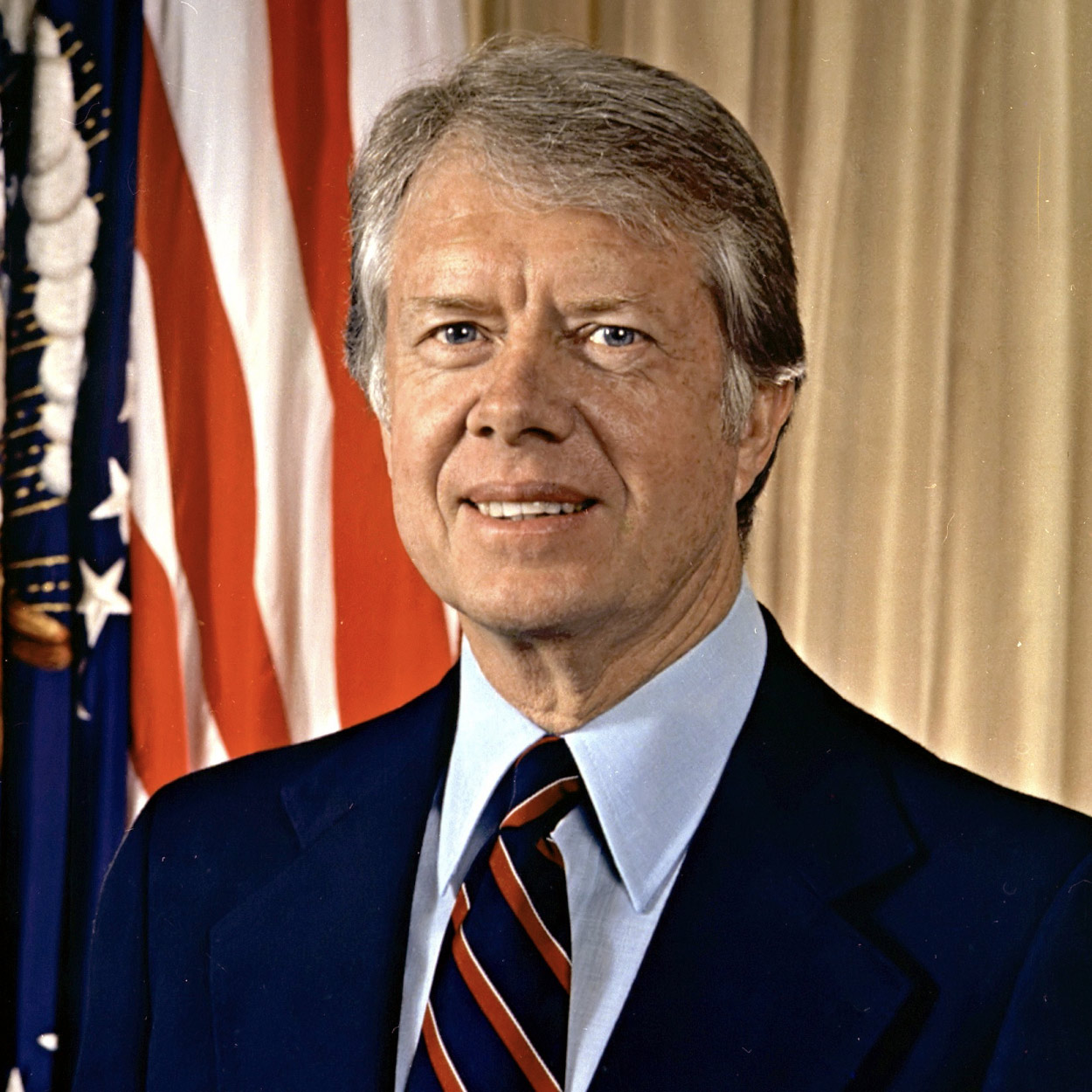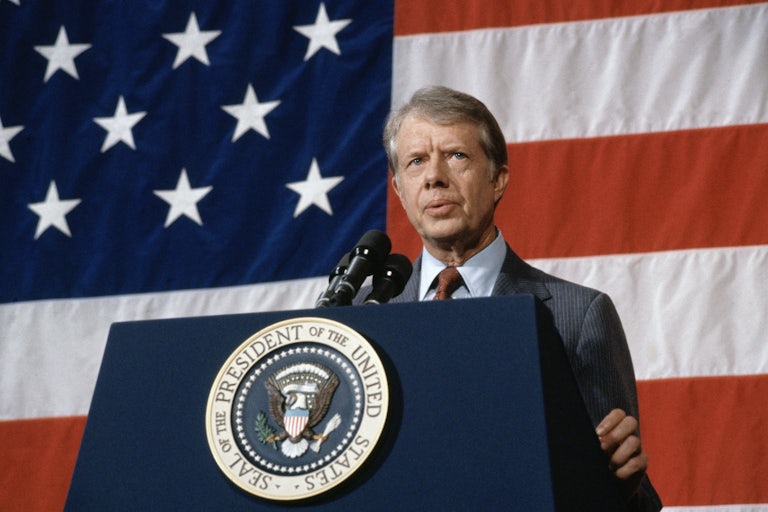
 Jimmy Carter served as the 39th President of the United States from 1977 to 1981.
Jimmy Carter served as the 39th President of the United States from 1977 to 1981.

Jimmy Carter aspired to make Government “competent and compassionate,” responsive to the American people and their expectations. It was a tough time in the late 1970's. The world and the United States had many problems. There was an energy crisis with long lines at the gas pump, high inflation and unrest between multiple nations. Despite this, Jimmy Carter was able to achieve something monumental in the Camp David Accords which resulted in an Arab-Israeli Peace Treaty. Jimmy Carter was also an environmental pioneer before being an environmentalist was even a thing.

One of the most extraordinary things that Jimmy Carter did during his presidency was to help negotiate a Peace Treaty between Israel and Egypt. This was significant because it was the first Arab country from the region surrounding Israel to come forward to make peace with Israel since the country was created in 1948 following WWII to give the Jewish people a homeland. Until then the neighboring countries had all been hostile. The Camp David Accords as the Peace Treaty was initially called gave hope for peace in the region and for Israel a historically close ally and friend of the United States.
The Israel-Egypt Peace treaty was not only negotiated by a special man, it was also negotiated in a special place, Camp David, the bucolic and isolated retreat of U.S. Presidents. Camp David is located deep in the woods of Maryland, sixty-two miles from Washington D.C. and is where U.S Presidents go to escape the pressures of the White House, negotiate with other leaders and figure things out.
In September of 1978, Jimmy Carter, Egyptian President Anwar Sadat, and Israeli Prime Minister Menachem Begin met at Camp David to negotiate what would become an important Arab-Israeli Peace Treaty. Jimmy Carter was the host of the event and for 13 days the men talked, ate meals together, took walks in the woods, watched multiple movies and worked towards a way that their countries might live in peace. There was a time during the stay that it looked like an impasse had been reached and an agreement would never be reached, but President Carter refused to give up and in the end the men all came together and achieved something great. It was originally called the "Framework for Peace in the Middle East". Both Egyptian President Sadat and Prime Minister Begin were awarded the Nobel Peace Prize in 1978 for their role in the negotiating the Peace Treaty. President Carter would later receive a Nobel Peace Prize for his role in the Camp David Accords and negotiating and bringing the countries together in 2002.
Below are some websites about the Camp David Accords and President Carter's Role in the them for further exploration:
The Framework for Peace in the Middle East
The Camp David Accords Thirteen Days that Led to Peace
CBS Archive Video of the Signing of the Camp David Accords
Text of the Framework for Peace in the Middle East
A Look Back on the Arab-Israeli Peace Treaty and the Camp David Accords
Camp David Accords and Arab-Israeli Peace Process

In terms of the environment and energy, Jimmy Carter was an environmental pioneer and visionary and ahead of his time. During his Presidency, there was an oil and gas crisis. There were long lines at the gas pump, high prices and countries hostile to the United States in charge of the world's oil and gas supply. The United States was dependent and not in a position of power in this regard. To help look for solutions, Jimmy Carter created the Department of Energy to look for alternate and renewable sources of energy and to help the United States to become less dependent on the oil supplies of foreign countries. He famously wore a cardigan sweater in a "fireside chat" with the country urging Americans to lower their thermostats and conserve energy. He encouraged home insulation, and investment in solar and wind technologies and even had solar water heating panels installed on the White House roof. In 1980, before leaving Office, President Carter also authored The Global 2000 Report to the President warning incoming President Reagan of widespread and pervasive changes in global climate if people continued to rely on fossil fuels. He was one of the first to make this prediction.
President Carter had asked Congress to help protect wildlife and wilderness in Alaska, but when they failed to reach an agreement, President Carter did it himself. In 1978, he single handedly protected 56 million acres in Alaska by declaring them national monuments using the little known 1906 Antiquities Act. in 1980, he fought for and got signed into law the Alaska National Interest Land Conservation Act which "created more than 157 million acres of wilderness area, national wildlife refuges, and national parks", Jimmy Carter "doubled the size of the National Park System, and tripled the size of the Nation's Wilderness Preservation System".